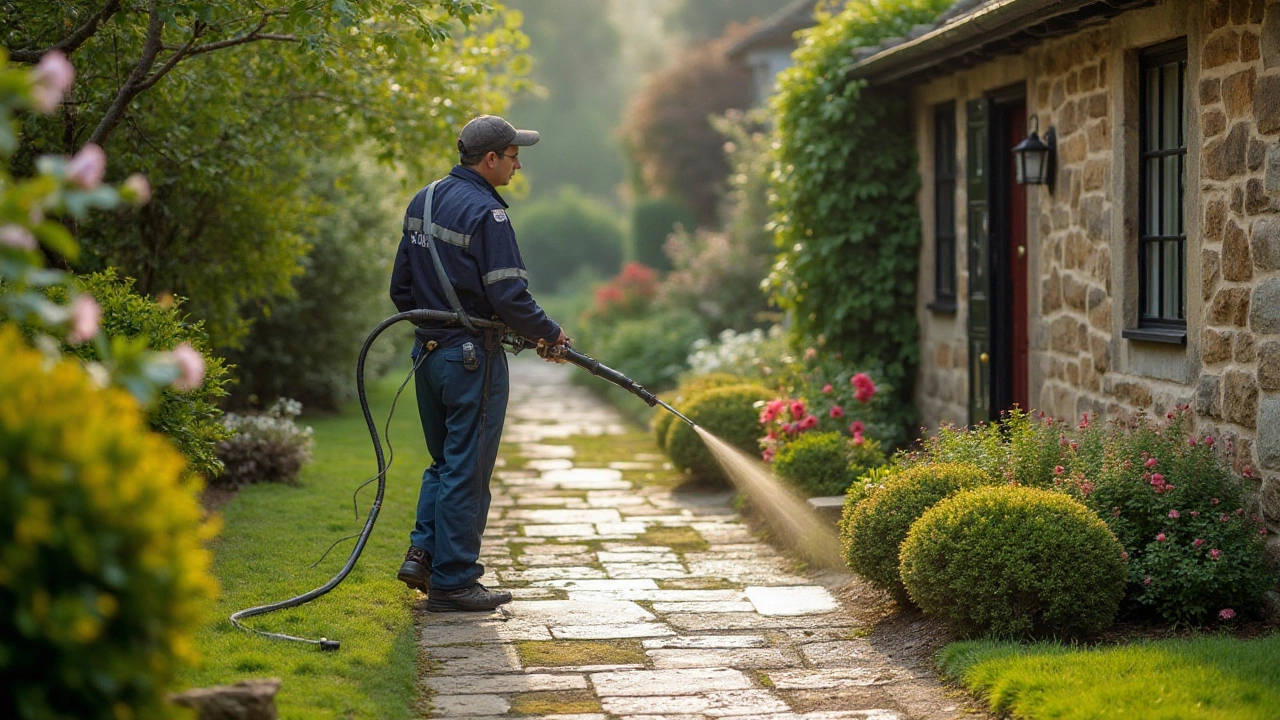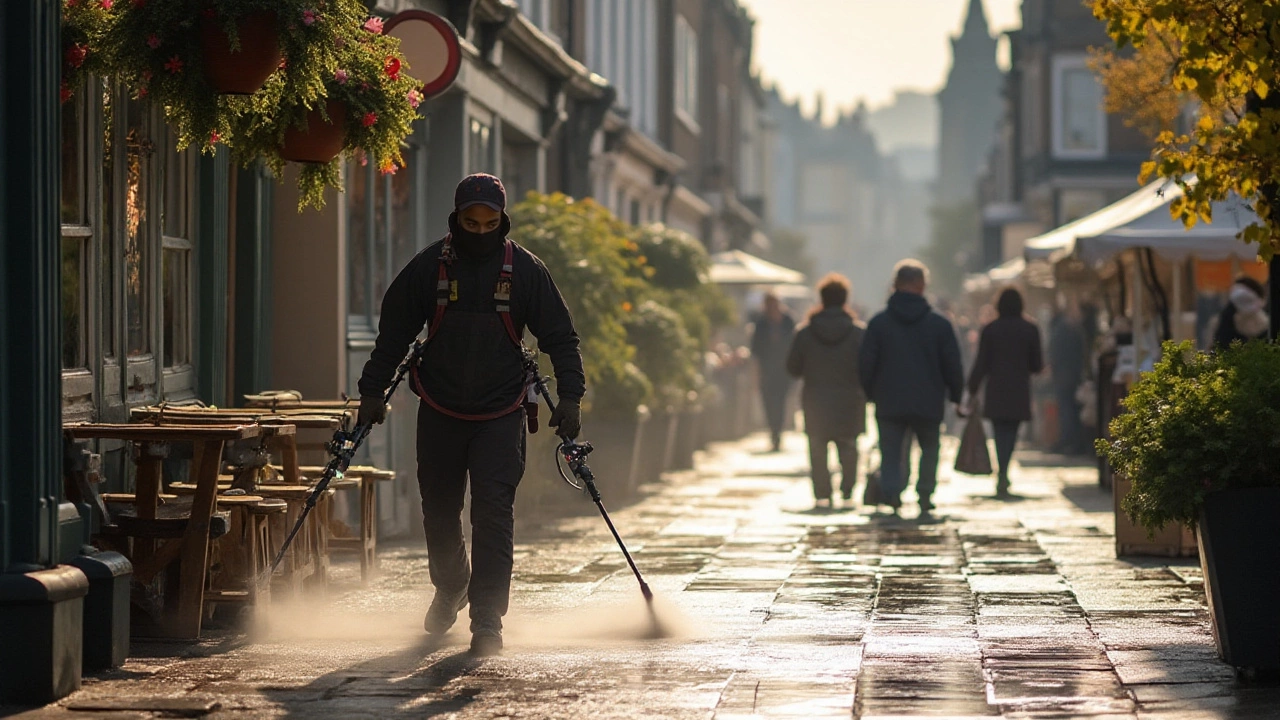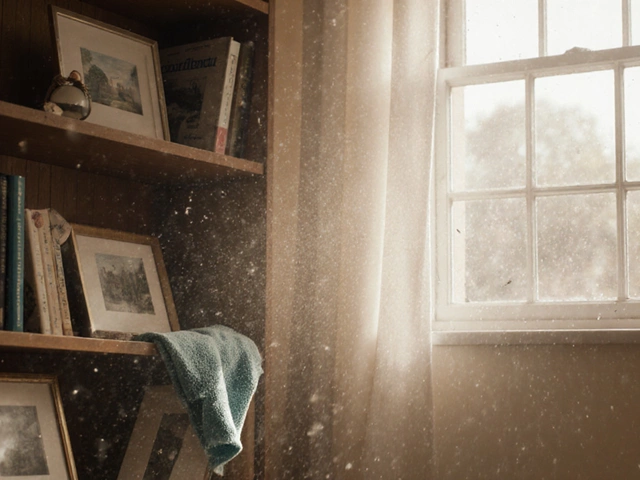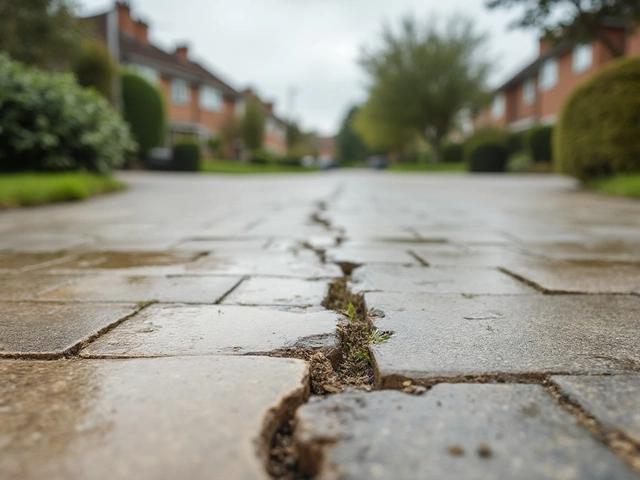Pressure washing might sound like a simple task, but those who do it professionally are known as pressure washer technicians. They have the skills and know-how to transform dirty surfaces into pristine ones using the right tools and techniques. These experts often work their magic on driveways, patios, and siding, making homes and businesses look like new.
In the world of cleaning services, there are few methods as satisfying and effective as pressure washing. From blasting away stubborn grime to revitalizing outdoor spaces, pressure washer technicians are the unsung heroes of clean. In this article, we're going to explore just what these professionals do, how they do it, and why their work is so beneficial. So, whether you're looking to hire one for your own cleaning needs or just curious about the job, read on to discover more about the world of pressure washing.
- What is Pressure Washing?
- The Role of a Pressure Washer Technician
- Advantages of Hiring a Professional
- Choosing the Right Pressure Washer
- Safety Tips for Pressure Washing
What is Pressure Washing?
Pressure washing, also known as power washing, is a highly effective cleaning technique that utilizes a significant force of high-pressure water spray to remove dirt, mold, grime, and loose paint from surfaces. Key surfaces treated with this method include those typically found around homes and businesses, such as concrete pathways, vehicles, and building facades. The basic idea behind pressure washing is straightforward: harnessing the natural cleaning power of water, but at pressures many times greater than a normal garden hose.
The magic of pressure washing lies in the equipment. A typical pressure washer consists of a motor or engine that powers a high-pressure water pump. Connected to it is a high-pressure hose and a pressure gun-style switch, which the operator uses to direct the cleaning jets. Depending on the machine’s design, it can adjust water pressure from as low as 1,300 PSI (pounds per square inch) to 4,000 PSI or more. This versatility ensures that the pressure washer technician can delicately clean sensitive surfaces or power through tougher stains and deposits when needed.
An interesting fact is that the concept of pressure washing was developed accidentally in the 1920s by Frank W. Ofeldt II, who discovered the cleaning power of pressurized steam. Since then, technology has evolved tremendously, allowing modern machines to be both portable and efficient. Today, there are both electric and gas-powered units, each serving different needs and offering varying levels of power. A seasoned technician knows how to select and configure these machines to suit the task, ensuring not only cleanliness but also the protection of surfaces from potential damage.
“A good pressure washing is like giving your surfaces a new lease on life,” says Jessica Jones, a renowned cleaning expert. “The results are often surprising, revealing the true beauty hidden beneath layers of dirt and stains.”
Additionally, pressure washing isn’t just about achieving aesthetic appeal. It plays a crucial role in maintenance by preventing the buildup of harmful substances like mold and algae, which can slowly degrade materials over time if left unchecked. This prolongs the life of the surface and reduces the need for repairs. For properties near the coast, regular pressure washing combats salt deposits that can corrode metal fixtures and surfaces.
Pressure washing can be a brilliant way to enhance the look of a property, but it's crucial to understand that it also comes with responsibilities. Safety precautions, such as wearing protective gear and ensuring proper waste disposal, are paramount. Additionally, knowledge of the local environmental regulations is essential in managing the effluent runoff, particularly in eco-sensitive areas. Adept technicians are trained in these practices, making them indispensable for anyone seeking a thorough and conscientious cleaning service.
The Role of a Pressure Washer Technician
The work of a pressure washer technician goes far beyond simply pointing a nozzle and spraying water at high pressure. These skilled professionals possess a deep understanding of the equipment they use, including the ability to select the correct nozzle, pressure settings, and cleaning solutions for each unique job. Choosing the right tools is crucial, as different surfaces require different pressure levels to prevent damage. Concrete might withstand high pressure, but delicate wood surfaces need careful attention to maintain their integrity.
Pressure washer technicians often begin their day by assessing the area in need of cleaning. This might involve inspecting surfaces for any existing damage that high pressure could exacerbate. They understand that preparation is key, so they remove obstacles that could cause injury or interfere with their equipment. Safety is a top priority, and technicians often wear protective gear, including goggles and gloves, to ensure they are not harmed by flying debris or chemicals.
Once a preliminary assessment and preparation are done, the pressure washing itself can commence. This step involves precise movements to ensure complete coverage of cleaning detergents and water streams. As one industry expert noted, "The technique is just as important as the pressure itself—proper angles and consistent motion make all the difference." These words highlight the mastery involved in pressure washing, turning what might seem like a straightforward task into a finely honed skill.
Beyond practical skills, pressure washer technicians are also responsible for maintaining their equipment. This entails regular checks of hoses, nozzles, and engines to ensure everything is in optimal working condition. A malfunction during a job can not only affect outcomes but also pose serious safety risks. This proactive approach to equipment care extends the lifespan of the tools, ultimately saving on costs and improving service quality.
In addition to hands-on tasks, there's a customer service aspect to the role. Pressure washer technicians often interact directly with clients, listening to their needs and providing advice on what can be realistically achieved. They offer guidance on post-cleaning steps, such as sealing driveways or scheduling future maintenance. This forms a relationship of trust with clients, ensuring repeat business and positive word-of-mouth recommendations. These professionals are not just technicians; they are problem-solvers, consultants, and partners in home maintenance.

Advantages of Hiring a Professional
When it comes to keeping your home or business exterior looking its best, hiring a professional pressure washer technician offers distinct advantages. These experts come equipped not only with advanced pressure washing tools but also with the knowledge and skills necessary to use them effectively. Have you ever attempted to use a pressure washer without proper training? It can be more complicated than expected. Professionals understand the intricacies of managing different surface materials, ensuring each receives the correct treatment to avoid damage while delivering a thorough clean. This precision is something only experienced technicians can provide, and it often leads to better, longer-lasting results.
One major benefit of trusting a professional is time savings. When you hand over the task to someone who does this for a living, you free up your own schedule for more pressing matters or enjoyable pursuits. Pressure washing can be unexpectedly time-consuming for a novice, yet an expert can complete the job swiftly, thanks to their specialized equipment and focused approach. Additionally, they can tackle large areas in a single session that would take someone less skilled much longer to cover. Another aspect to consider is safety. Improper handling of a pressure washer can lead to serious injuries or accidents. Professionals know how to maneuver equipment safely and navigate tricky areas without putting themselves or others at risk.
There's also the environmental aspect to consider. Professionals in cleaning services are increasingly adopting eco-friendly practices, using detergents and equipment that have less impact on the environment. Some are even recycling water used during the cleaning process, which can significantly reduce waste. Engaging a professional often means benefiting from these green techniques, which might be difficult to replicate on your own. As an added advantage, experienced technicians can spot problem areas or maintenance issues on your property that you might overlook. This means they don't just clean; they can also provide insights that help you maintain your property better in the long run.
"A common misconception is that pressure washing is a simple, easy task,” says John Smith, a leading expert from Clean Sweep Solutions. "But, as with any specialized task, the results speak for themselves when it's left to an experienced technician."
Hiring a professional can also be cost-effective in the grand scheme of things. While there is an upfront fee for their services, it often equates to savings in the long-term. By preventing damage and maintaining the condition of your surfaces, you may find yourself spending less on repairs or replacements of siding, decks, or concrete areas. Moreover, many professionals offer package deals or regular service contracts, providing added value. Lastly, those who are particular about curb appeal and property value will find professional pressure washing an essential service. Properties that look clean and well-maintained tend to have higher market value and make an excellent first impression on visitors or potential buyers.
Choosing the Right Pressure Washer
Choosing the right pressure washer is crucial to getting the most out of this potent cleaning tool, whether you're a homeowner looking to tidy up your property or a business owner maintaining your premises. The first thing to consider is the pressure rating, measured in PSI (pounds per square inch), which determines the washer's power. Machines with a PSI ranging from 1,000 to 2,000 are perfect for lighter tasks like washing cars or patios. However, for tougher jobs such as removing oil stains from concrete, a unit with a PSI of 2,800 or above is recommended. Knowing the right PSI ensures you won't damage delicate surfaces, while still providing enough power to leave a clean finish.
Another important factor is the GPM (gallons per minute), which indicates the water flow. A higher GPM means more water output, leading to faster cleaning times. Balancing PSI and GPM is essential to finding a machine that meets your need for both speed and efficiency. For home use, an electric pressure washer is generally adequate. These are less expensive and quieter, making them a good choice for residential areas. On the flip side, gas-powered machines offer greater power and mobility, perfect for larger, tougher tasks, albeit with some increased noise and maintenance requirements.
When considering features, look for ones that add convenience and versatility. Adjustable nozzles allow you to change the spray pattern and pressure, making it easier to tackle different surfaces without damaging them. Some models come with detergent tanks that automatically mix soap with water, saving you time and effort. Safety features, like trigger locks and thermal relief systems, are also important for both the longevity of your equipment and your personal safety while operating these powerful machines. Reliability and customer service from the manufacturer should play into your choice as well, with well-regarded brands often having better support and warranties.
"The right pressure washer can save you hours of manual labor and achieve that thorough clean you're aiming for," affirms Anna Stern, a home maintenance expert. "When selecting one, it's not just about power alone; ease of use and safety are just as critical."
Take a look at the accessories available, as these can greatly expand the capabilities of your pressure washer. Surface cleaners, for instance, are specialized attachments that help evenly distribute pressure and make cleaning large, flat areas much quicker and efficient. Brush attachments can help scrub surfaces gently yet effectively, improving cleaning outcomes on delicate surfaces. Whilst these may add to the initial cost, they are worthy investments for those who intend to use the pressure washer frequently or for a variety of tasks. Ultimately, the right choice comes down to matching the machine's capabilities to your specific needs while ensuring safety and cost-effectiveness.

Safety Tips for Pressure Washing
Pressure washing is a game changer in the world of cleaning services, turning grimy, stained surfaces into clean, welcoming spaces. However, with great power comes great responsibility, and using a pressure washer requires a certain level of care and attention to safety. One of the most important things to remember is the power behind a pressure washer. It may look like just a stream of water, but the high velocity can cause serious injury if mishandled. Always keep the nozzle pointed away from yourself and others, and never try to adjust or change the settings while the unit is in operation. Taking these precautions is essential to keeping safety front and center while enjoying the benefits of pressure washing.
Understand Your Equipment
Before you begin, it's crucial to understand the pressure washing equipment thoroughly. Different surfaces require different pressure levels, and using too much force can easily damage what you're trying to clean. For example, a concrete driveway can handle much higher pressure compared to a wooden deck. Always start with the lowest setting and work your way up, testing in a small, inconspicuous area if uncertain. Understanding when and how to use detergents is also important, as improper use can lead to surface damage or even chemical burns.
Choose the Right Accessories
Using the right accessories can make a huge difference, not only in efficiency but also in safety. For high-reach areas, skip the ladder and opt for an extension wand instead. This reduces the risk of falls while still achieving the same level of cleanliness. Safety goggles are a must to protect your eyes from debris that might fly up during pressure washing. It’s these small adjustments in gear that can make the job safer and more effective.
"Safety doesn't happen by accident." - Author Unknown
Mind the Electricals
Water and electricity are a dangerous mix, so it’s important to be extremely cautious. Make sure any nearby electrical outlets are covered with waterproof material. If your pressure washer is electric, ensure that the power cord and connections are in good condition and kept away from water. This will help prevent electrical shocks, which could lead to serious injury.
Pay Attention to the Environment
Being mindful of your surroundings is as essential as handling the equipment correctly. Watch out for pets, children, and pedestrians while pressure washing. Inform neighbors if you're working in a shared space, and place warning signs to prevent accidents. This not only protects others but also makes the entire cleaning process go more smoothly and efficiently.
Be Aware of Weather Conditions
Weather plays a crucial role in outdoor cleaning tasks like pressure washing. Wet and slippery conditions can increase the risk of falls, while strong winds can blow debris back at you. Check the weather forecast before starting, and plan your work on a day when conditions are safest. Taking these factors into account ensures that safety is an integral part of your cleaning project.




